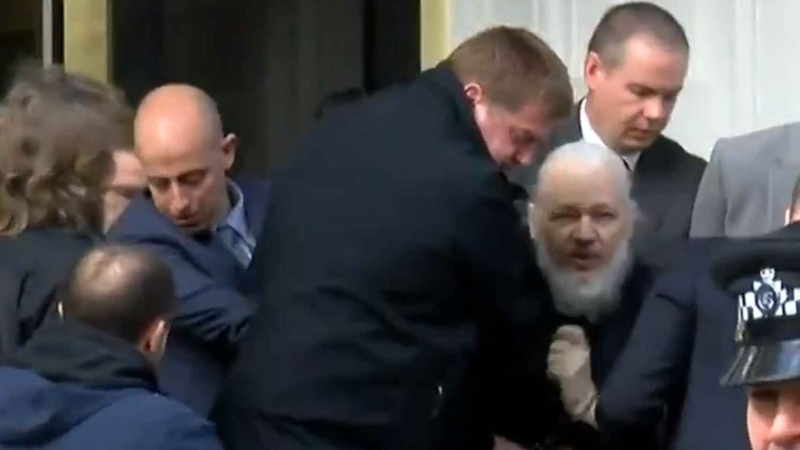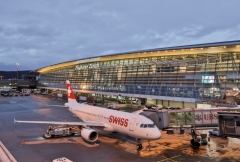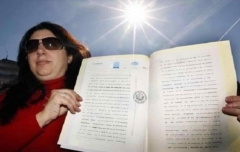UK government approves Julian Assange's extradition to the US
The UK government approved Julian Assange's extradition to the US, authorities announced on Friday. Home Secretary Priti Patel signed the extradition order on Friday, thus upholding a UK court's April ruling.
The UK government approved Julian Assange's extradition to the US, authorities announced on Friday. Home Secretary Priti Patel signed the extradition order on Friday, thus upholding a UK court's April ruling.
"On 17 June, following consideration by both the Magistrates Court and High Court, the extradition of Mr Julian Assange to the US was ordered. Mr Assange retains the normal 14-day right to appeal", the Home Office stated.
The Home Office added that the British courts "have not found that it would be oppressive, unjust or an abuse of process to extradite Mr. Assange".
"Nor have they found that extradition would be incompatible with his human rights, including his right to a fair trial and to freedom of expression, and that whilst in the US he will be treated appropriately, including in relation to his health".
Following the decision, the journalist may launch an appeal at London's High Court - which must grant approval to proceed - or take the case to the UK Supreme Court. However, if his appeal is refused, Assange must be extradited to the US within 28 days.
WikiLeaks has issued a lengthy statement criticising the move as they vowed to appeal the decision.
"This is a dark day for Press freedom and for British democracy. Anyone in this country who cares about freedom of expression should be deeply ashamed that the Home Secretary has approved the extradition of Julian Assange to the United States, the country that plotted his assassination", the organisation stated.
WikiLeaks stressed that it was in Patel's power "to do the right thing. Instead she will forever be remembered as an accomplice to the United States in its agenda to turn investigative journalism into a criminal enterprise".
The WikiLeaks founder's wife, Stella Assange, has reacted to the decision, pointing out that Julian had done nothing wrong: "He has committed no crime and is not a criminal. He is a journalist and a publisher, and he is being punished for doing his job".
"Today is not the end of the fight. It is only the beginning of a new legal battle", Mrs Assange added.
A UK judge approved Julian Assange's extradition to the United States in April, leaving the final decision to the government. Back in May, Assange's defence filed a representation to UK Home Secretary Priti Patel to block his extradition.
Assange is indicted by the US on multiple charges of alleged espionage and hacking, which resulted in the publication of classified documents by WikiLeaks exposing US war crimes in Afghanistan and Iraq. The WikiLeaks publisher's lawyers argue that he could face up to 175 years in jail if he is convicted in the United States.
Assange stayed at the Ecuadorian embassy in London from 2012 to 2019 amid fears that British authorities would extradite him to the US. When Ecuador revoked his asylum status in 2019, UK police arrested him and he served an 11-month sentence for breaking bail conditions in a previous case accusing him of sexual assault in Sweden. Sweden dropped the probe into the sex assault allegations in November 2019 because so much time had elapsed.
Since 2019 he has been held in the Belmarsh maximum-security prison while his extradition was considered by courts.

Comments to this:








